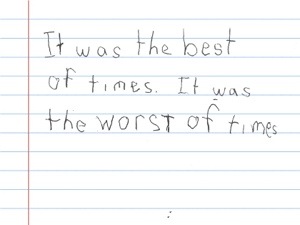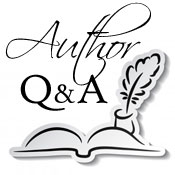Happy Thanksgiving! Here’s our normally Thursday posting, today. Click above for the latest installment of The Accidental Author. In this episode: How to start and get through a first draft. A great quote from one of the biggest author’s around and how to see your writing as an art form. Did you miss an episode? Click here for episode 2 and here for episode 1.
Tag: editing
My Virtual Tour’s Final Stop
Have you spotted the last stop of my Virtual Tour? I wrapped up the summer by sitting down with Omnimystery and discussing the conclusion to the “Wild” Bill Hiccock Thrillogy.
A Conversation with Thriller Writer Tom Avitabile
We are delighted to welcome back novelist Tom Avitabile to Omnimystery News, courtesy of The Story Plant, which is coordinating his current book tour. We encourage you to visit all of the participating host sites; you can find his schedule here.Last month we featured an excerpt from Tom’s third thriller to feature presidential science advisor William “Wild Bill” Hiccock,The God Particle (The Story Plant; June 2014 trade paperback and ebook formats). Today we’re sitting down with him to talk a little more about the book and the series.
Click here for the full Q&A
The Precocious Writer

I am a big fan of precocious children, you know, that point right before they become judgmental teens. When you can still have a fun, multisyllabic conversation without them interrupting the moment, looking down for a text message.
What happens? How does an engaging, surprisingly aware 7 to 10 year-old, firing off word use and ideas in a seemingly random fashion, with each truly important to them, change with the onset of social puberty? Why do these wonderfully rich observations and conversations children have with inanimate objects or real people, disappear? In a mysterious way that an adult could never understand, these creative impulses are thematically connected to a stream of consciousness that makes total sense to their internal logic.
If you haven’t guessed yet, this blog was written right after Thanksgiving and the temporary immersion into family that comes along with Turkey, stuffing and pumpkin pie. However, copious amounts and second helpings of Tryptophan cannot diminish the fascination I have with these young minds, situationally aware, yet full of imagination and not inhibited at all. Hence the delightful conversations which if attempted with a texting-teen would take 3 times as long as you pull teeth to get more than one word answers, i.e. “yes, no, what-ever, maybe, I duuno, yeah.”
What do I get out of all this? A method to spark creativity and a model to emulate. The precocious child is the essence of creativity and observation, without filters or the self-consciousness that later in life devolves our ability down to “safe,” tried and true methods of not taking any risks in conversation or our writing.
I was once involved in an effort to foster a better path to creativity and curiosity for young minds. It reversed the normal paradigm of teaching writing (creativity) to elementary school kids. That being; to let their minds go, unfettered by grammar spelling and the traffic cop adherence that stresses form over content. This resulted in more mental exercising, yielding stronger, more elaborate and involved concepts.
This was not just simply a matter of flipping the old way around to see what happened, instead it was based on a study that seemed to indicate that at early ages, mental activity and imagination are forming and active, yet the ability to grasp structure and grammatical laws actually develops later in life. So it is an educational model that better fits the natural expansion of the human brain.
This to me is a great lesson to writers, be as free with your thoughts, observations and conversations as a 7 year old. Resist the grown up internal governors that stop or stem a creative arc before it’s left the barn. Allow imagination to once again rule the roost. Be fearless in the reality that, in the end, they are all imaginary characters anyway, and not bound by physics, logic or flesh and bone. You can always find a “grown up” to clean up the grammar, usage and punctuation later – (and pay them well for it!)


